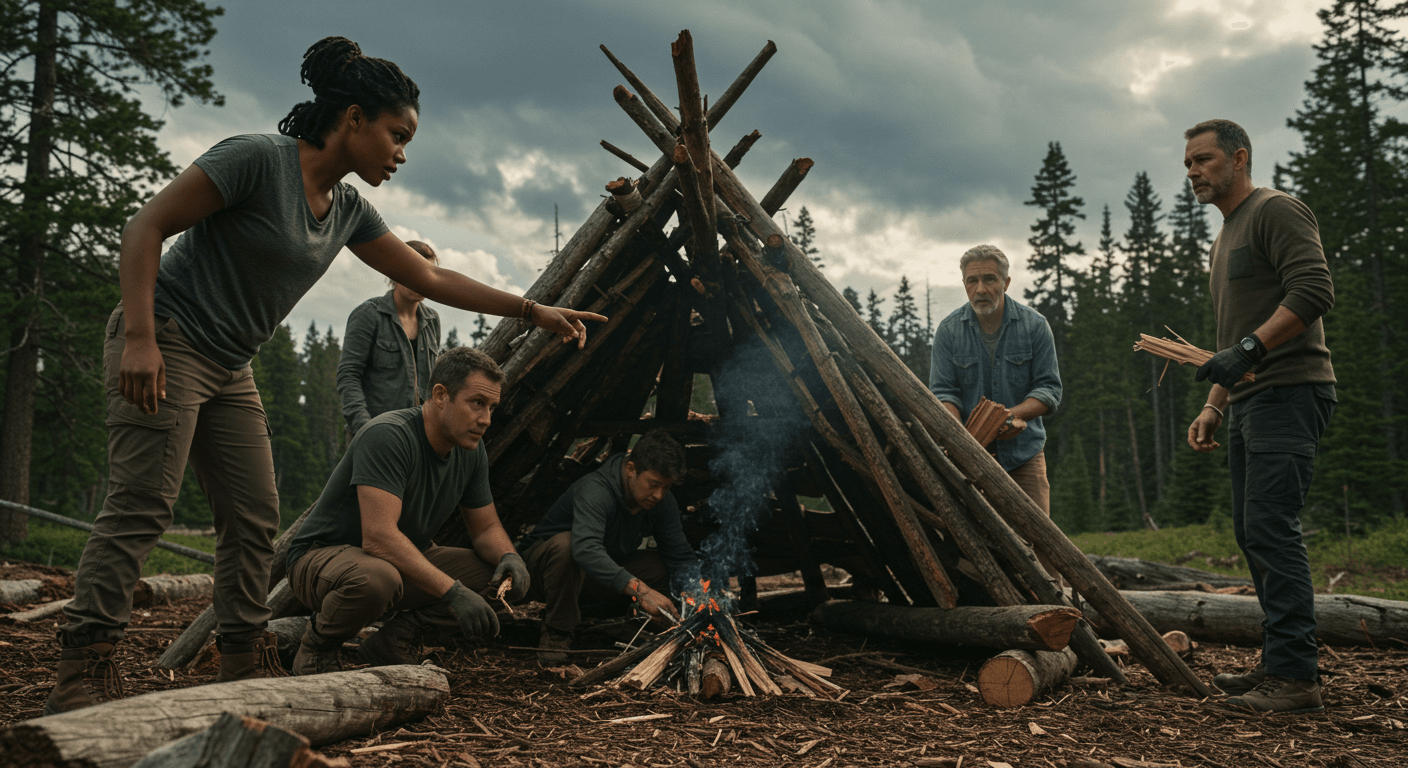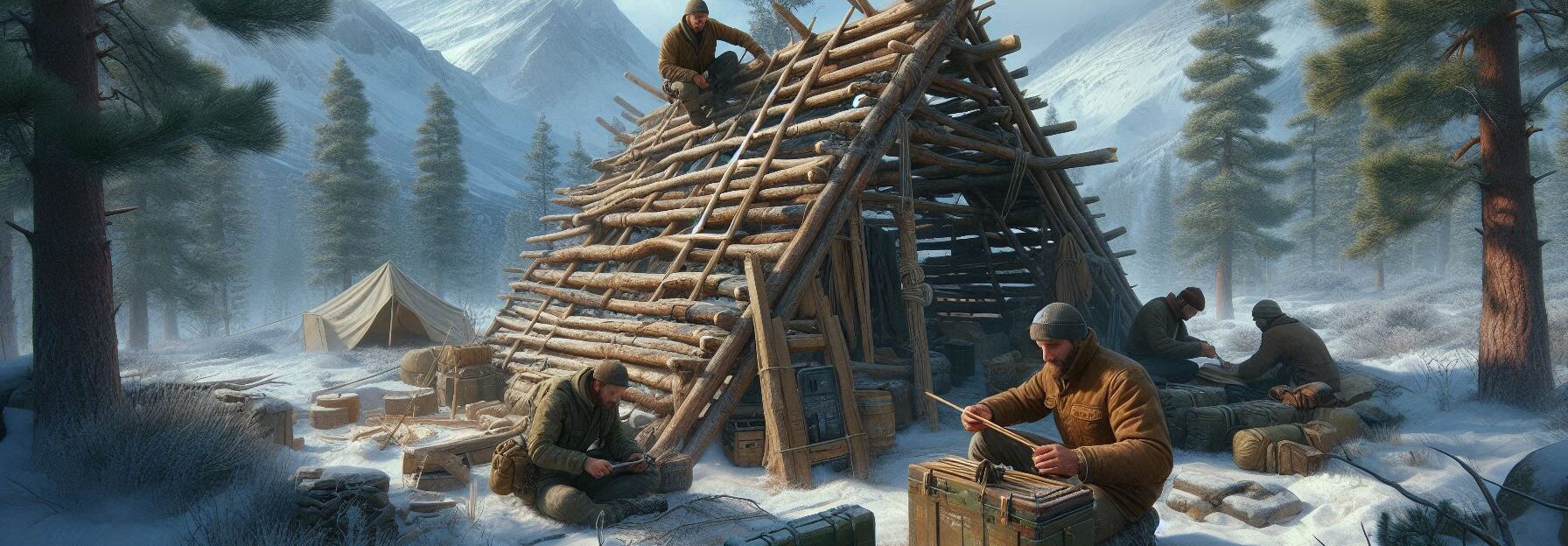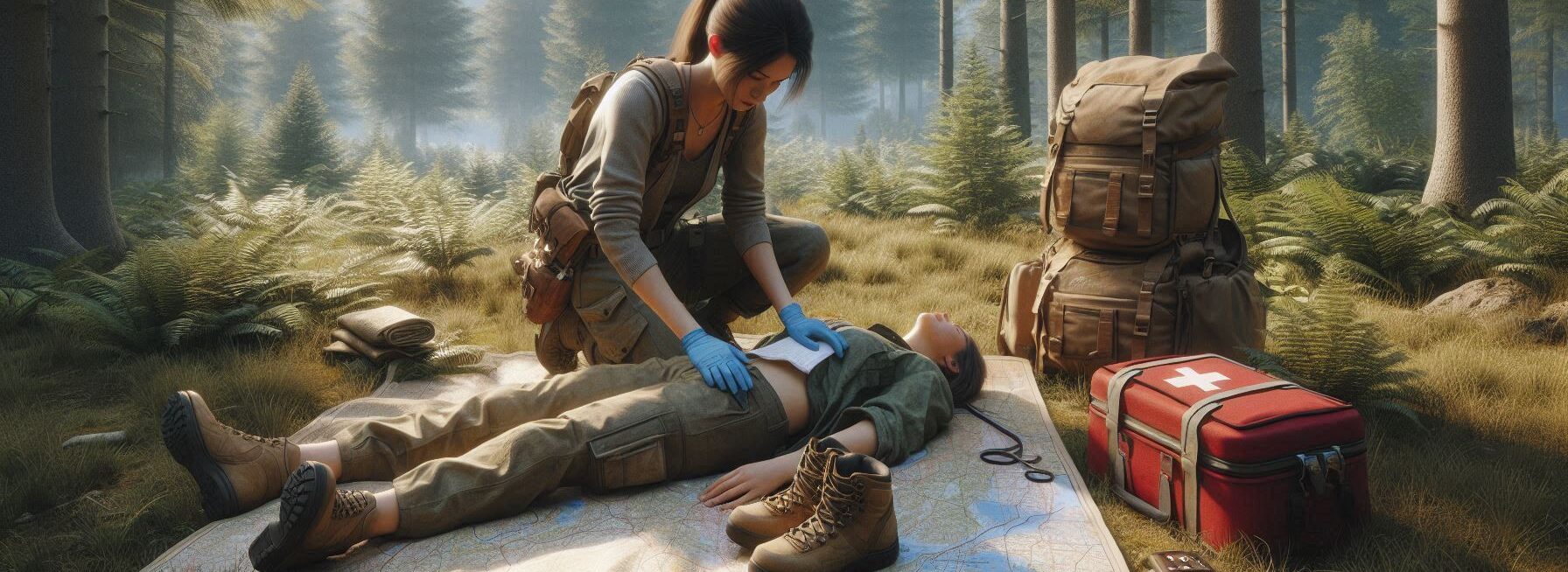Please Note: This post may contain affiliate links. If you click one of them, we may receive a commission at no extra cost to you. As an Amazon Associate, I earn from qualifying purchases.
Last Updated on November 2, 2025 by Kevin Collier

Top Takeaways and Key Concepts
– Practice deep breathing techniques to maintain focus and reduce panic during crisis situations.
– Visualize successful outcomes to boost confidence and prepare mentally for emergencies.
– Develop a reliable plan that outlines steps to take in various crisis scenarios.
– Surround yourself with supportive individuals to strengthen resilience and teamwork in emergencies.
– Continuously educate yourself on survival skills to enhance your preparedness and adaptability.
Picture this. You're out in the woods, having a great time. The air feels fresh, birds are chirping, and everything seems perfect. But then, whoosh! Your friend trips over a root and lands face-first in a bush that definitely looks like a bee headquarters. Yikes!
What do you do? Freak out? Shout? Or maybe take a deep breath and think, “Wow, this isn’t how I planned my Saturday!”
Staying calm can really help in moments like this. Developing a survival mindset means you can think clearly, even when things get a little crazy. It’s not like explaining to everyone why your friend just face-planted into the bush will be easy. Trust me, it's much simpler to focus on helping them.
First, check if your friend’s okay. They might need a hand (or a laugh) to get up. Ask if they’re hurt. If they are, give them a moment. Let’s hope the bees are just as confused as we are!
Next, figure out how to calmly move them away from the bush. Maybe move slowly and gently. Talk to them. Distract them with a funny story—like that time you accidentally wore mismatched shoes. It always lightens the mood!
It's like having a superpower to think about survival. It helps you figure things out more quickly. You're not freaking out; you're working on a solution. You know, that could mean asking for help or just finding a safe place to be away from the swarming bees.
Life gives us surprises, like roots that trip us up or bees that show up out of nowhere. If you stay calm, a scary experience can turn into a funny story. Imagine telling everyone later how your acquaintance become a “bee ambassador” after that short trip.
So, the next time you're out there, just remember to take a deep breath. Accept the unexpected. Things can get crazy, but if you have the correct attitude, you'll be fine.
*** Shop for Survival Gear - Tools - Kits ***
Survival Gear - Bags and Backpacks - Knives - Boots/Footwear - Communication
Outdoor Cooking - Gloves - Hydration - Dry Boxes - Water Filtration Systems
Tents - Sleeping Bags - First Aid Kits - Multi-Tools - Flashlights - Fire Starters
Navigation - Survival Food - Night Vision - Headlamps - Stun Guns - Binoculars
1. The Importance of Staying Calm
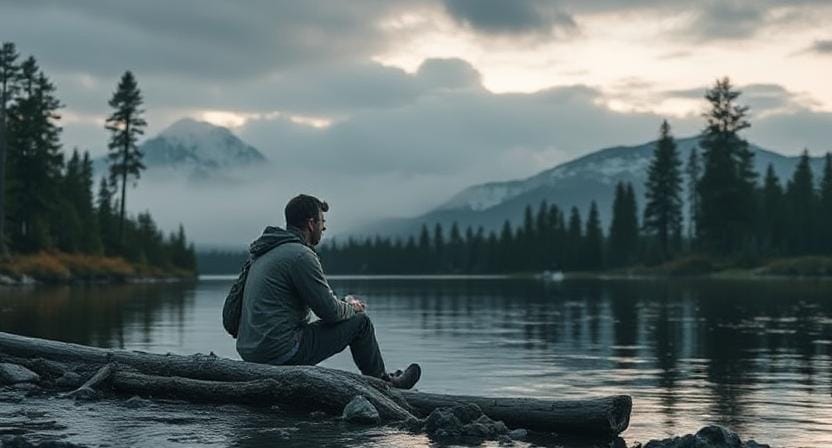
First of all, remaining calm isn't just for yoga teachers or those zen monks we see on TV. It's about making decisions that are clear when everything else seems to be going wrong.
During a crisis, our brains can feel like they're caught in traffic during rush hour—too much to do and not enough time to do it.
One time while camping, we were surprised by a thunderstorm that ruined our nice bonfire and made the area around it a mess.
While everyone else was running around like crazy (or maybe they were just practicing their chicken impressions), I took a deep breath and thought about what I needed to do: get supplies and find a place to stay!
I was able to help everyone else focus by being calm, and we all made it through the storm without going crazy (or losing our marshmallows).
2. Looking at Your Situation

Now that we know how important it is to stay cool, let's speak about how to look at your circumstance. This means not letting yourself get caught up in panic mode and instead paying attention to what's going on around you. You don't need a magnifying glass to be a detective.
When things go wrong, like when my friend tried to cook hot dogs over an open flame that was more like a bonfire than anything else, ask yourself these questions: What do I have that I can use? Is anyone hurt?
Are there furious animals all around me? Answering these questions helps make things clearer.
If you ever get lost in the woods (which sounds dramatic but can happen), make sure to mark any landmarks or signs of civilization nearby before you go into “survival mode.”
You might see something useful, like a trail sign or another campsite with better munchies than yours!
3. Putting Actions In Order
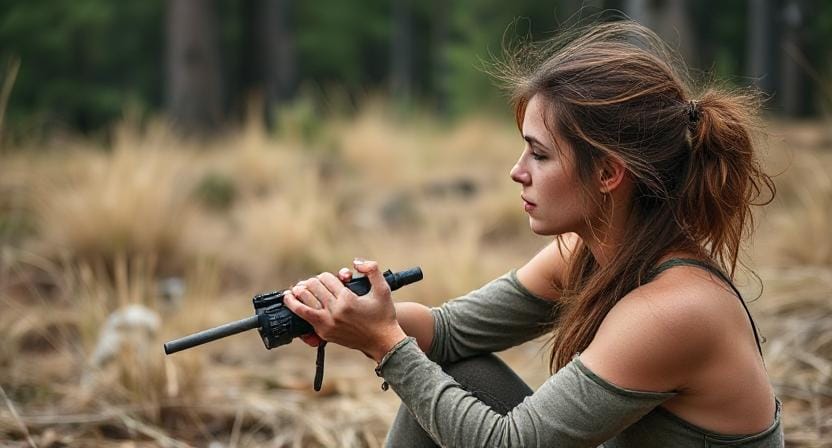
After you look at your circumstance, you need to make a list of what has to be done first. It's like making a shopping list, but with more at risk! When things get tough, figure out what needs to be done right away and what can wait (like learning how to cook gourmet meals over an open fire).
For instance, if someone is hurt (and ideally not by falling into bushes loaded with bees), prioritize first aid over collecting food.
Let's be honest: no one wants to eat granola bars while afraid that their friend will pass out from shock. Before you start planning dinner, make sure everyone is safe.
It's interesting how rapidly priorities may change. What appears important right now might alter in a matter of minutes when new information comes in, like seeing bears nearby or learning there are more mosquitoes than you thought at nightfall!
4. Using the Resources That Are Available
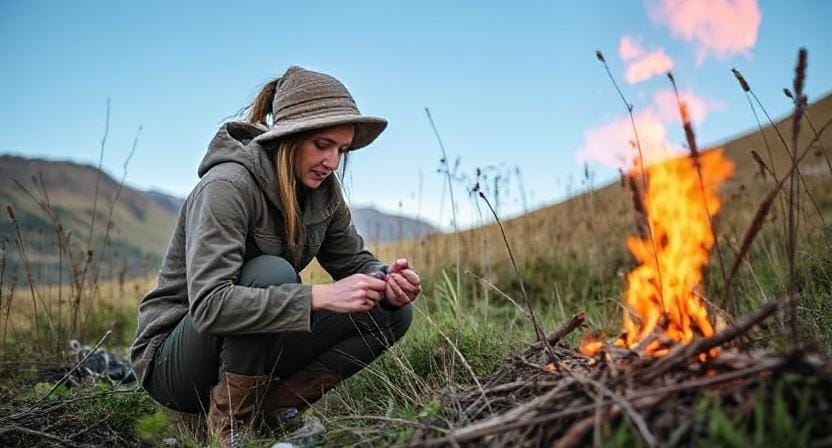
Make the most of what you have! It might be anything from extra clothes to keep you warm to leftover snacks to give you energy (since let's face it, hunger makes us all cranky).
You'd be amazed at how many problems you can handle with a little inventiveness if you have tools on hand, even if it's only duct tape.
On another camping trip that went wrong (yeah, I've had a few), we became stuck since the severe rain washed away the paths back home.
We didn't want to sit beneath tarps eating soggy sandwiches, so we made rain catchers out of tarps connected between trees! We were proud of how smart we were when we got enough water to cook and drink.
In the end, you should also look for natural resources. For example, branches can be used as shelters and rocks can be used as windbreaks when they are required most.
5. Talking to Yourself In A Positive Way

Lastly, and this may sound silly, but please bear with me: say to yourself in a positive way. Your brain likes input almost as much as squirrels love acorns. That's saying a lot.
When things get tough, tell yourself, “I can do this” or “I am capable.” These sentences can really help you feel more confident.
But really, it doesn't hurt to add some comedy along the road either! When the weather turned bad and the mood dropped faster than the temperature outside, I joked that if things didn't get better soon, we would all become expert mud wrestlers.
Even when nature throws its worst at us, laughing may help us relax and keep our spirits up.
Conclusion
Okay, imagine you're outside or at home trying to put together that hard IKEA shelf. Things aren't going the way they should. Maybe a storm comes out of nowhere, or you have a bunch of perplexing wooden parts in front of you.
That's when it really helps to have a survival mindset. When everything seems to be going wrong, it's important to be calm. Think about it. Take a second to breathe when something unexpected happens. Taking deep breaths can definitely help you think more clearly.
Take a look around first. What do you have? If you're outside, you might be able to find a tree to hide beneath or some extra goodies in your rucksack. When you have to deal with those IKEA items, work on one at a time. You don't have to deal with the whole shelf at once. You will get there.
When things get tough, using what you have can help. Think about how it would be to use a big piece of cardboard as a table in the rain. Or, if those IKEA instructions are too hard to understand, just turn them upside down!
Everything is easier when you add a little bit of positivity. You could laugh a little. Imagine your friend trying to fit a huge float shaped like a hot dog into a small automobile. It's so dumb! It makes things better, right?
Keep in mind that life gives us problems. Stay cool, even if you're outside trying to avoid raindrops or putting together IKEA furniture. You don't have to just get through it. You can do well.
So, the next time you get a surprise, enjoy it. Keep cheerful and use what's around you. You can do this! Let's deal with whatever comes next!
Frequently Asked Questions
Why is staying calm important in a crisis?
Staying calm prevents panic and allows clearer thinking so you can make better decisions under pressure.
How does deep breathing help during emergencies?
Deep breathing lowers stress responses, steadies nerves, and increases focus when adrenaline spikes.
Should I create crisis plans ahead of time?
Yes, having predefined steps for different emergency situations improves reaction speed and confidence.
Why is visualization useful for survival mindset training?
Visualizing success builds mental readiness and conditions the brain to respond more effectively when real stress occurs.
How does being around supportive people help in crisis?
Supportive individuals reinforce calm behavior, improve morale, and increase teamwork during stressful events.
Is positive self-talk a real survival skill?
Yes, positive self-talk boosts resilience, strengthens belief in your abilities, and reduces emotional overload.
Why should I constantly learn new survival skills?
Ongoing learning improves adaptability and equips you with more options to handle unexpected challenges.
Suggested Resources:
How To Stay Calm in a Crisis
https://www.psychologytoday.com/us/blog/the-moment-youth/202001/how-stay-calm-in-crisis
Crisis Management Techniques
https://www.forbes.com/sites/forbescoachescouncil/2020/03/31/crisis-management-techniques-for-leaders/?sh=4d8b9c6e44f7
Survival Skills You Need to Know
https://www.outdoorlife.com/survival-skills-you-need-to-know/

Kevin Collier is a seasoned survivalist and expert in prepping and homesteading, contributing to WiseSurvive.com. With a deep-rooted passion for self-sufficiency and outdoor survival skills, Kevin shares practical advice, strategies, and resources to help individuals prepare for any challenge. His informative articles cover a range of topics, from essential survival techniques to sustainable living practices, empowering readers to thrive in any situation. Whether you're a novice or a seasoned prepper, Kevin's insights will inspire you to take charge of your readiness and build resilience for the future.

